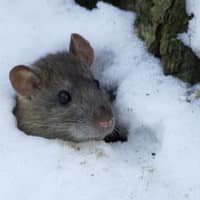You may think that just because the colder weather is here, you don't have to worry about pests getting into your home. Unlike in the spring, summer, and fall, pests in winter just die off or hibernate. Right? Sorry. You may not have to worry about swatting mosquitoes in your backyard, fighting groundhogs in your garden, or ridding your shed's eves of hornets' nests during the winter, but the truth is, pests can be active and even multiply all winter long.
When it comes to winter pests, there are two points to understand most. The first is that there are many creatures that take part in an activity called overwintering. When temperatures drop, bugs and wildlife look for a place to hide. If they chose to hide in your home last fall, you could already have an infestation. The second is that many creatures don't hibernate. That means that even if you don't have any invading pests right now, you could before winter is over. Cold temperatures have a way of motivating those creatures to get in out of the bitter wind; and when they do, many of them won't be content to stay in your walls, basement, or attic spaces. Common winter invaders like mice, rats, and cockroaches will forage throughout your home, moving from digging in your trash to crawling through food storage areas and on food prep surfaces.
Pest Prevention Tips:
- Inspect the outside of your home and seal up any gaps or cracks using a caulking gun.
- Be sure foundation vents are secure and operating properly.
- Stack firewood well away from your house and make sure it is up off the ground. When you bring wood inside to burn, burn it within 48 hours.
- Do not leave pet food down in between meal times. If pests do find a way into your home, this is one sure way to make them stay.
- Thoroughly clean the inside of your home, especially places where food is prepared or stored. Pay close attention to hard-to-reach places such as under the fridge or in between the stove and cabinet. A hungry pest may go elsewhere.
- Store all food in the refrigerator or in tightly sealed plastic, metal, or glass containers.
When pest-related illness strikes during winter months it can often be mistaken for the flu or the common cold. Stay on top of overwintering and harboring pests to make sure they are not spreading illness in your home while you sleep. If you need an inspection or would like treatment options for your New England home, drop us a quick message through our online forms. We'd be happy to help.
Pests can be a problem all through the winter, but they don't have to be when you have American Pest Solutions.

